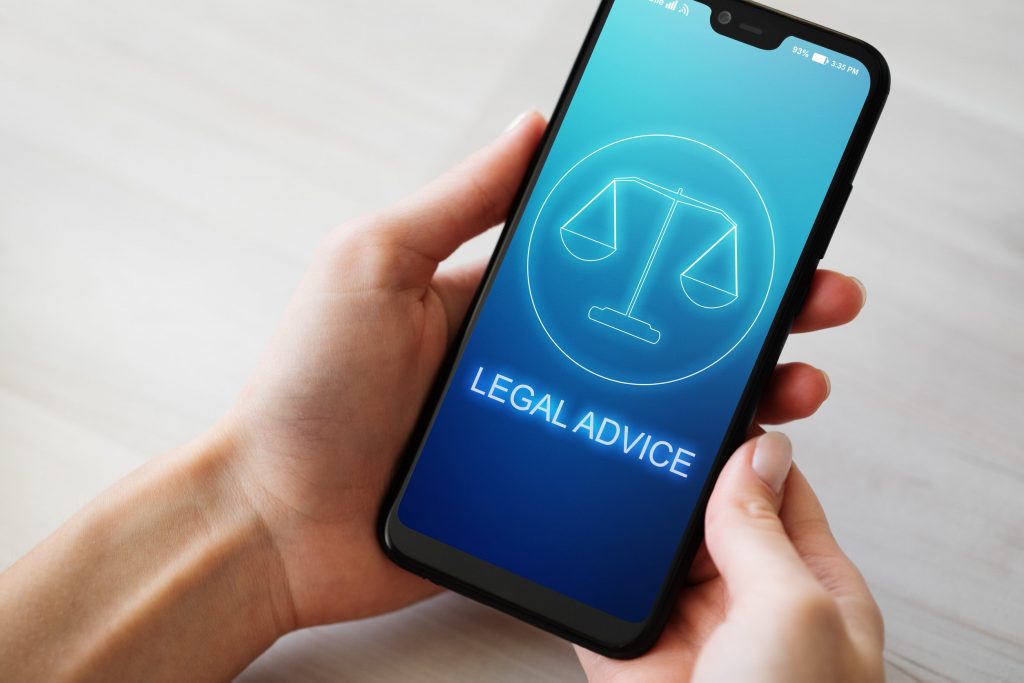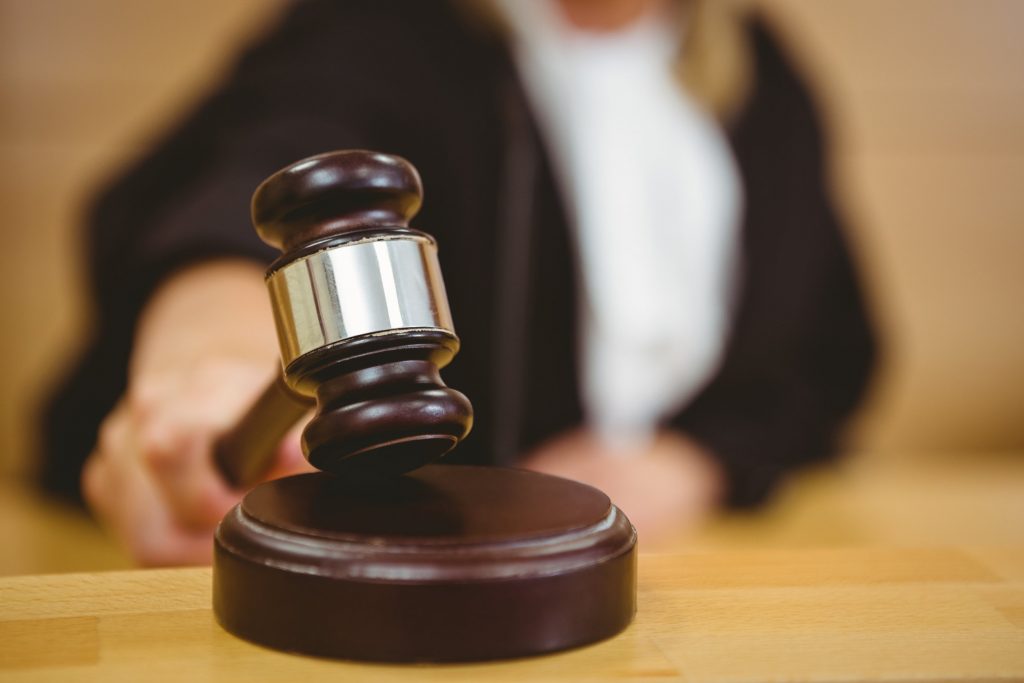Filing a personal injury claim can be a long, drawn-out process. It also doesn’t always follow the same timeline or sequence of events, which can feel overwhelming to an injured victim. The good news is that you don’t have to go through the personal injury claim process alone. Find out just what to expect in this step-by-step guide from the southern Nevada personal injury lawyers at ER Injury Attorneys.
Related: Personal Injury FAQs
#1: Find Out If Your Claim Is Covered by an Insurance Policy

Most personal injury claims are paid by insurance companies, not individuals. If you were in a motor vehicle accident, you can file a claim with the at-fault driver’s insurance company. Auto insurance policies are the first place to look for compensation if your injuries were caused by any of the following:
If your injury occurred on a homeowner’s property, you may be able to seek reimbursement through homeowners insurance. If the injury or accident occurred at a place of business, you might file a claim with the business owner’s business insurance through a general liability policy or a professional liability policy. Similarly, if you were injured by a defective product, you might file a claim with the manufacturer’s product liability insurance.
Additional insurance policies may come into play as well, such as an individual’s umbrella insurance policy, which can provide additional compensation when a primary auto or home insurance policy is maxed out.
#2: Gather As Much Documentation As You Can
Before filing a personal injury claim, you need to ensure that you have enough evidence to support your claim. A personal injury attorney can do much of this on your behalf, but it’s a good idea to organize as much paperwork as you can beforehand. So what kind of documentation do you need to provide?
There are two types of information you should focus on—documents that prove you have a right to compensation, and documents that prove the value of your claim. For starters, you’ll want to keep track of all medical bills you receive and request copies if you aren’t automatically given them. In addition, you’ll want to gather medical records that clearly document the extent of your injuries, your treatment history, and your prognosis. This includes any initial testing or medical interventions you may have received in the hospital, plus any follow up care (such as pain management appointments, ongoing physical therapy, etc.).
Medical bills and records of any lost wages will help you estimate the value of your claim. But you’ll need more than just evidence that you were injured; you’ll also need proof that your injury was in fact caused by the defendant’s negligence and is covered under their insurance policy. This type of evidence may be harder to come by, but a good place to start is a police accident report (if you were in a traffic accident), photos or video from the accident scene, and witness statements from anyone who was present when the injury occurred.
#3: Have Your Case Evaluated by a Professional

Not every personal injury requires legal representation, but it’s important not to underestimate your losses. Before you start talking to the insurance company or even think of accepting a first settlement offer, seek out a consultation with an experienced personal injury law firm. The vast majority offer free, no obligation case evaluations for exactly this reason.
Bring whatever evidence you already have gathered to your consultation. An attorney will not only tell you if they think you have a case, but they’ll also explain all of your other legal options and help you get a better idea of what your claim is actually worth.
Learn more about what to expect during a free personal injury consultation.
#4: Investigation, Review, and Demand Letter
Should you decide to move forward with legal counsel, the next step in the personal injury claim process is an in-depth investigation by your personal injury attorney. The attorney and other members of their legal team may interview you more thoroughly about the events leading up to your injury, request medical records on your behalf, and consult with witnesses or accident reconstructionists to establish fault and negligence.
After gathering and reviewing all available evidence, your attorney will likely draft a demand letter to the insurance company. This may take some time, as your lawyer may want to wait until you are fully recovered (or as recovered as you can be). This ensures that the demand letter contains an accurate summary of your past, present, and future losses.
Should you decide not to hire an attorney, you can also work directly with the insurance adjuster assigned to your case to resolve your claim. You can even draft a demand letter of your own, although it is recommended to at least let an attorney review it before sending.
#5: Negotiations and Possible Settlement Agreement
Submitting a demand letter can lead to several outcomes. If your demand letter specified a particular amount of compensation, the insurance company could agree to all the demands and you may sign a settlement agreement before receiving your settlement check.
Another possibility is that the insurance company will make a counter offer of its own. At this point, you or your attorney may enter into negotiations with an insurance company representative. Both parties may go back and forth on issues like full or partial liability and insurance coverage exclusions or simply bargain on the settlement amount. If you agree on an amount, you’ll sign a settlement agreement and then receive your settlement check. If you cannot come to an agreement, you or your attorney may then file a lawsuit.
The third possibility is that an insurance company will altogether deny the injury claim for one reason or another. Should this happen, you or your attorney have the option of bringing the claim to court.
#6: File a Personal Injury Lawsuit in Court

In order to succeed from this point onward, you will need the assistance of a qualified personal injury attorney. Your attorney will file a claim for damages on your behalf against the liable party (most likely an insurance company, but this may sometimes be an individual as well).
Note: Keep in mind that your personal injury lawsuit must be filed within the Nevada statute of limitations, which is two years from the date of the accident or injury.
This part of the personal injury claim process may be one of the longest and most frustrating for accident victims. After the lawsuit is filed, your claim will enter the discovery phase, in which both your attorney and the defendant will have time to investigate each other’s claims. This may result in many documents requests and possible witness depositions.
After discovery, your attorney and the defendant will have the chance to negotiate an offer again through a process called mediation. A neutral third party will mediate the negotiations in hopes of reaching a settlement. If you do in fact reach an agreement, you’ll receive your settlement without the need for a judge or jury trial.
If both sides cannot reach an agreement, the case will go before a judge and/or jury. During the trial, both sides will have the chance to make an opening statement, present their argument and supporting evidence, and submit a closing argument. A jury will then usually deliberate and a verdict will be returned in favor of one side or the other.
Talk to an Experienced Personal Injury Lawyer
ER Injury Attorneys has been guiding injured victims through the personal injury claim process since 2011. In that time, our lawyers have secured millions of dollars in settlements on behalf of clients. If you’ve been hurt in southern Nevada through no fault of your own but aren’t sure what to do next, we can help.
Our top notch legal team handles a wide range of personal injury and wrongful death claims throughout Clark County and Nye County. We serve clients in Las Vegas, Henderson, Boulder City, Laughlin, and Pahrump.
To schedule your free, no obligation consultation with ER Injury Attorneys, call us any time at 702-878-7878. We’ll review the details of your case, explain all your legal options, and help you make the right decision for you and your family.
Should you decide to hire us, we charge you no legal fees until we make a financial recovery on your behalf. Give us a call, connect with one of our LiveChat agents standing by, or fill out this form to request your complimentary case review today.
